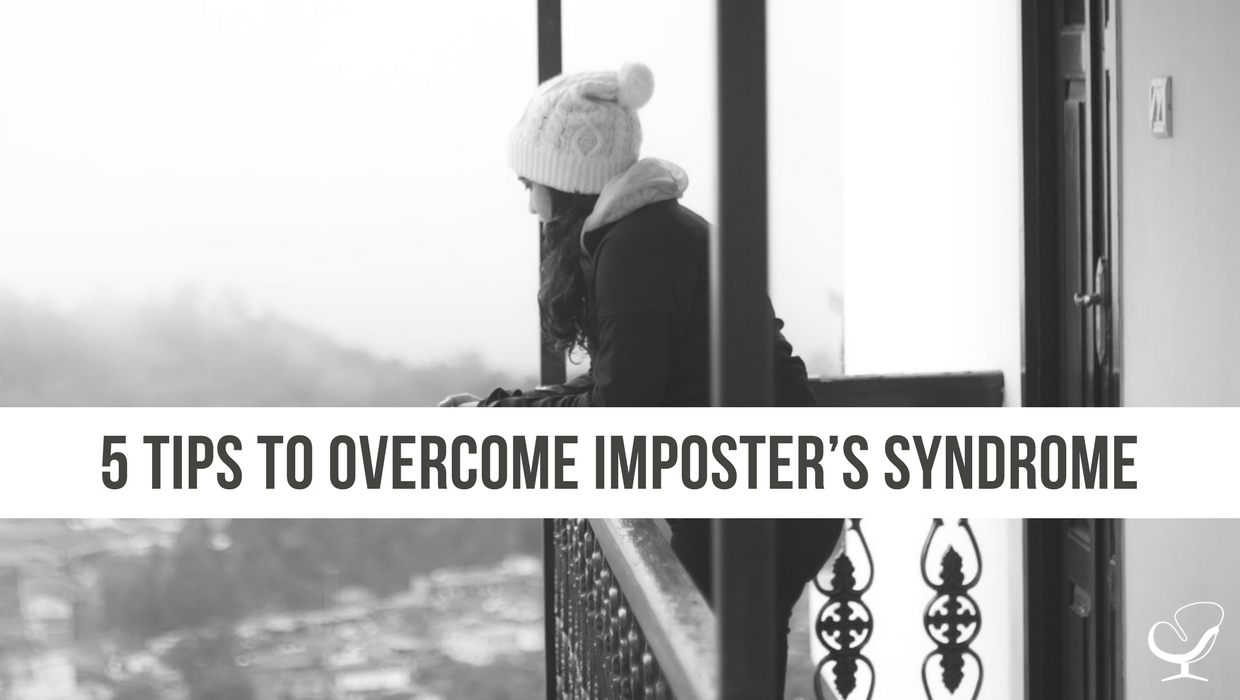I was about two weeks into private practice when it really hit me. My confused and overwhelmed client was pouring her heart out to me. And, there I sat across from her, hands sweating.
I was completely flooded in imposter syndrome.
Thoughts raced through my mind.
Who am I to give this person council?
What if I say something wrong?
Dear God, this woman really needs to talk to a therapist! I might need to find her one.
Listen, we all struggle at times to find the right empathic response, or to come up with the best course for a treatment plan. Imposter’s syndrome, however, is the feeling of being less competent than our role – of being a fraud.
It’s a very common experience.
In our role, we’re expected to be emotionally present and grounded and people come to us for help. When we aren’t quite sure what to do, of course it’s bound to trigger some insecurity in our competence and we question our value as a therapist. We might start looking around and comparing ourselves.
If this is you – you are not alone!
We all struggle with this at some level, and it’s important to recognize and move through it. Getting stuck in imposter’s syndrome can weaken your reach into the world, muffle your clinical skills, and just feel awful.
5 Tips to Overcome Imposter’s Syndrome
So, what’s one to do? Here are 5 tips to combat imposter’s syndrome.
1. Trust the Process
Basically, breathe and don’t try to save the world. Without much experience, it can be especially challenging to trust the process. I still struggle with it myself. I remind myself of my core beliefs as a counselor. It helps me to stay grounded and navigate from a place of clarity. My beliefs are:
- Healing happens in relationships.
- Love is the answer.
- Point the client toward health.
- Change and insight come from action.
- Use research-based screeners and protocols for safety or serious mental health issues.
- When in doubt – listen more deeply.
2. Talk With Other Clinicians
We are social creatures. It encourages and strengthens us to be around others. Talking with clinicians in your field can give you new insight, information, and normalize some of the struggles that you’re experiencing. I have found that every person I’ve talked to about my own imposter feelings has also struggled with something similar. It makes me feel more ‘normal’, and that’s a relief.
3. Invest in Your Learning
You will quickly become out of touch if you rely on the minimum requirements of CEUs for your learning. Go to conferences and meetings and learn, not just inside the mental health profession, but also outside of mental health. It’s amazing how many tools can help our clients that are in fields like wellness, leadership, business, education, religion, and marketing. Think I’m wrong? Try it. There are tons of seemingly non-related podcasts, books, and biographies that I have used in my work with clients. It adds tons of tools to my belt.
4. Speak and Write
Not only is it a fantastic marketing idea to give training or write on topics that matter to your ideal clients, but it also helps to sharpen your skills and helps you to clarify your message. I frequently speak to groups of educators, school counselors, and parents. Also, I regularly write for others and for my own blog. I love the creative outlet and the confidence it gives me. Most importantly, I do this because I genuinely want to give help to others and this allows a positive message to reach a broader audience than my office alone can. And, that feels great.
5. Know You Are Enough
In her work, Dr. Brene Brown speaks of our longing for love and belonging. When challenged with insecurity, like imposter’s syndrome, its human nature to ‘puff up’ oneself or to ‘shrink’ oneself down. Neither is helpful. Puffing up may result in portraying more experience, training, or skill than you actually have. Not only is this unethical, it actually does make you a bit of a fraud and it’s bound to get you terrible reviews. People can spot a fake.
Shrinking may look like playing small as a therapist, under-charging your clients, or setting poor boundaries with your time and emotions. This isn’t helpful either, as it will kill your business or drain you emotionally. “Stand your sacred ground” is Dr. Brown’s antidote to insecurity. Be upfront, honest, and present. This is what your clients’ need and this is what they are looking for. Like everyone else, you’re imperfect, but give your best and know that you’re enough.
You have a big job to do and your clients and the world needs your gifts. Smile and breathe, because you’ve got this. I believe in you!
Jenna Fleming, M.Ed, LPC, NCC is owner and clinician at Georgetown Child & Family Counseling in the beautiful hill country of Texas. Her practice and work specializes in children, teens, young adults, and parents. Jenna is author of the Deeply Rooted Parenting program and often writes and speaks on topics for parents, educators, and counselors. When not engaged in her work, you’ll likely catch her being silly with her husband and two kids, practicing yoga, or enjoying delicious Tex-Mex.


